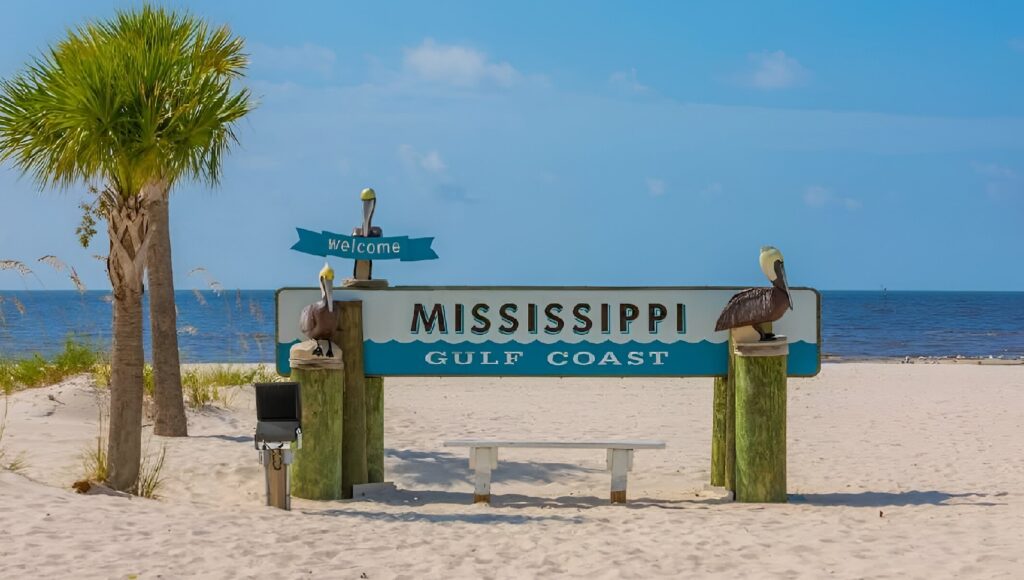Mississippi: A Tapestry of Culture, History, and Natural Beauty
Mississippi, named after the mighty Mississippi River that defines its western boundary, is a state rich in history, culture, and natural beauty. Located in the Deep South, it offers a fascinating blend of old and new, traditional and contemporary, and rural and urban elements. The State is known for its pivotal role in American history, particularly during the Civil Rights Movement. It also boasts of a vibrant cultural scene, a diverse economy, and stunning landscapes.
Echoes from the Past: A Land Steeped in History
Mississippi’s history is deeply intertwined with the broader narrative of the United States. The area now known as Mississippi was originally inhabited by various Native American tribes, including the Choctaw, Chickasaw, and Natchez. European colonization began in the 16th century with the arrival of Spanish explorer Hernando de Soto. The French later established a foothold in the region, founding Fort Rosalie (now Natchez) in 1716.
It’s journey to statehood was marked by significant events, including its admission to the Union as the 20th state in 1817. The state played a crucial role in the antebellum South, with its economy heavily reliant on cotton plantations and slave labor. The Civil War and Reconstruction era brought profound changes, including the abolition of slavery and efforts to rebuild the state’s economy and social fabric.
The Struggles and Triumphs of the Civil Rights Movement
The 20th century saw Mississippi at the forefront of the Civil Rights Movement. Landmark events, such as the murder of Emmett Till in 1955 and the assassination of Medgar Evers in 1963, highlighted the brutal realities of racial segregation and discrimination. The state’s courageous activists, including Fannie Lou Hamer and the Freedom Riders, made significant strides toward achieving racial equality and justice.
Mississippi’s Cultural Richness
The cultural environment of Mississippi is a complex tapestry made of many different traditions, including African, Native American, European, and Asian ones. The state is frequently hailed as the cradle of American music, especially country, blues, and gospel. It is home to renowned musicians like B.B. King, Muddy Waters, and Elvis Presley, whose contributions have had a lasting impact on world music.
The Mississippi Delta, often referred to as the “cradle of the blues,” is a region steeped in musical heritage. Clarksdale, a small town in the Delta, is home to the Delta Blues Museum and the annual Juke Joint Festival, which attracts music enthusiasts from around the world. The state’s rich literary tradition is equally impressive, with renowned authors like William Faulkner, Eudora Welty, and Richard Wright capturing the complexities of Southern life in their works.
Mississippi’s Natural Beauty
Mississippi’s diverse landscapes offer a wealth of natural beauty and outdoor recreation opportunities. The state is characterized by its lush forests, rolling hills, fertile plains, and scenic waterways. The Mississippi River, the second-longest river in the United States, is a vital natural resource and a key feature of the state’s geography.
The Gulf Coast, with its sandy beaches and warm waters, is a popular destination for residents and visitors alike. Cities like Biloxi and Gulfport offer a mix of entertainment, dining, and recreational activities, while nearby barrier islands provide pristine natural habitats for wildlife and plant species.
Inland, the Natchez Trace Parkway is a scenic drive that follows an ancient Native American trail, offering breathtaking views and access to historical sites, hiking trails, and campgrounds. The state’s numerous state parks, such as Tishomingo State Park and Buccaneer State Park, provide additional opportunities for hiking, fishing, boating, and camping.
A Culinary Adventure
Mississippi’s food culture is a rich blend of Southern traditions and diverse influences. Staples include fried chicken, catfish, and barbecue, each prepared with unique regional twists. Soul food, like collard greens, cornbread, and black-eyed peas, reflects African American heritage. The state’s proximity to the Gulf Coast brings fresh seafood, particularly shrimp and oysters, into its cuisine. It is also famous for its desserts, such as pecan pie and sweet potato pie. Additionally, the farm-to-table movement and culinary innovation are increasingly prominent, blending traditional flavors with modern techniques. This culinary tapestry makes Mississippi a vibrant gastronomic destination.
Economic and Educational Development
Mississippi’s economy has evolved significantly over the years, transitioning from an agricultural base to a more diversified economy. While agriculture remains important, with crops like cotton, soybeans, and corn playing a significant role, other sectors have grown in prominence. Manufacturing, particularly in automotive and aerospace industries, has seen substantial growth. The state is also a leader in poultry production and aquaculture.
Education and healthcare are critical components of Mississippi’s development strategy. The state is home to several universities and colleges, including the University of Mississippi (Ole Miss), Mississippi State University, and Jackson State University. These institutions contribute to research, innovation, and workforce development in the state.
There has also been an emphasis on initiatives to enhance healthcare outcomes and access, especially when it comes to resolving issues with rural healthcare. The goal of initiatives to increase telehealth services and make investments in healthcare infrastructure is to make Mississippians’ general quality of life better.
Challenges and Opportunities
Despite its many strengths, Mississippi faces several challenges, including poverty, education disparities, and healthcare access. The state consistently ranks low in national measures of income, educational attainment, and health outcomes. Addressing these issues requires comprehensive and sustained efforts from both public and private sectors. However, Mississippi also has significant opportunities for growth and development. The state’s rich cultural heritage, natural resources, and strategic location provide a solid foundation for economic and social progress. By leveraging these assets and addressing its challenges, Mississippi can continue to build a brighter future for its residents.
In conclusion
Mississippi is a state of contrasts and complexities, where history and modernity coexist, and where challenges are met with resilience and determination. Its rich cultural heritage, natural beauty, and evolving economy make it a unique and integral part of the American landscape.

